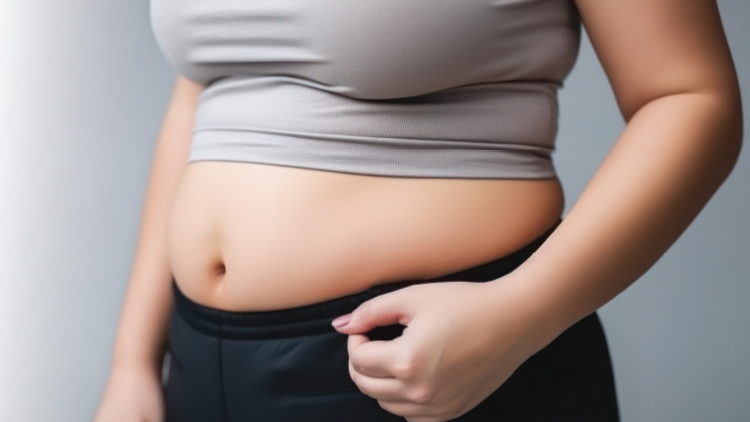Midlife Weight Gains: The Myths
Every one of my clients tells me, “I cannot shake this menopause weight, no matter what I do. It has to be my hormones, right?” My reply is this: “Fluctuating and declining hormones cause our bodies to redistribute fat – mostly to our abdomen – AND menopause itself does not cause weight gain.” Hear me out.
As we age, our declining progesterone and fluctuating estrogen cause symptoms that affect us. Declining progesterone affects our sleep, which can lead to fatigue, which can lead to us moving less. Fluctuating estrogen can cause vasomotor symptoms that keep us up at night, disrupt our energy during the day, cause our joints to hurt and create mammoth headaches and mood swings. All of these can contribute to us moving less and eating more.
Women also experience burn out at a higher rate than men do because we are care takers, carry the emotional load of family life and are at the peak of our careers in mid-life. All of these factors combined with menopause symptoms change how we move, eat and feel. Add decades of diet culture rhetoric on top of this and we will struggle to care for ourselves in the ways our bodies and minds need us to.
Our bodies need different things in mid-life. Movement is one of these things – to preserve muscle and mobility, keep our joints supple and protect our mental health. Our protein needs increase as we age because we don’t absorb or process it the way we did when we were younger. Protein is key to maintaining and building muscle because we are generally under muscled!
We can lose the weight in midlife – there are non-restrictive ways to do it! Our goal as we age is to gain strength, maintain mobility and vitality, and thrive! Reach out to me if you want to know more about midlife strength, fat loss and how to tamper those symptoms of menopause.
Carol Peat is a woman's health advocate, Mum of three, wife to one, Nana of two and dog Mum to Piper, a golden retriever. She is passionate about you feeling your best, brave in your body.












